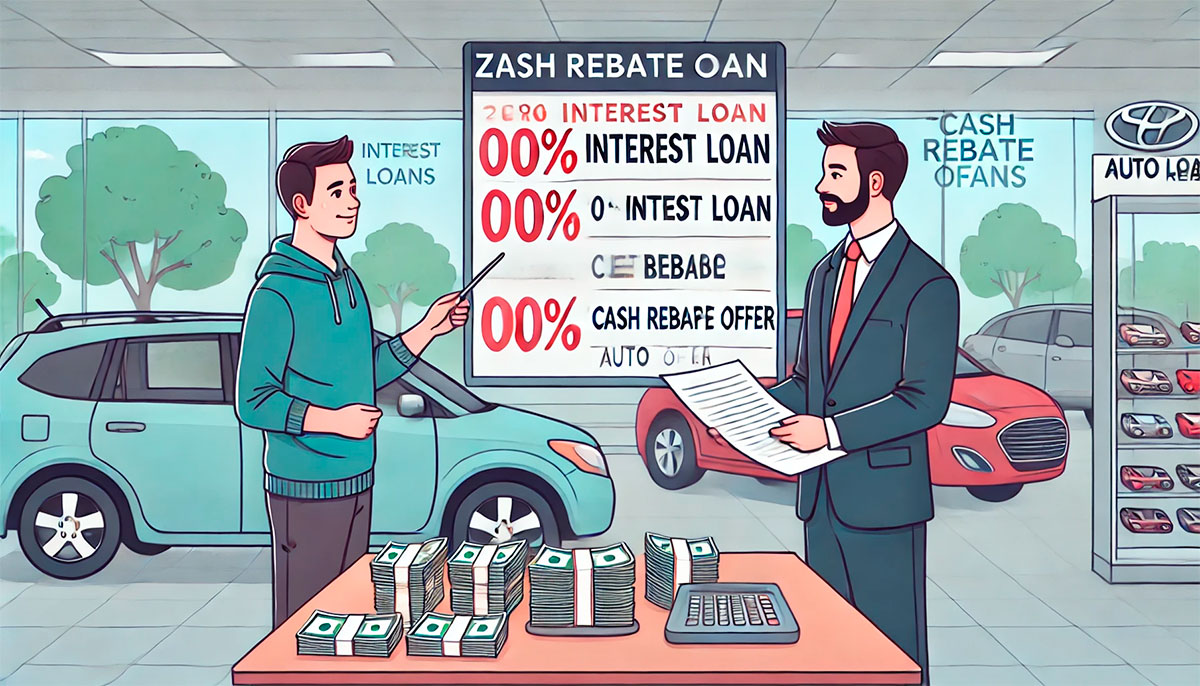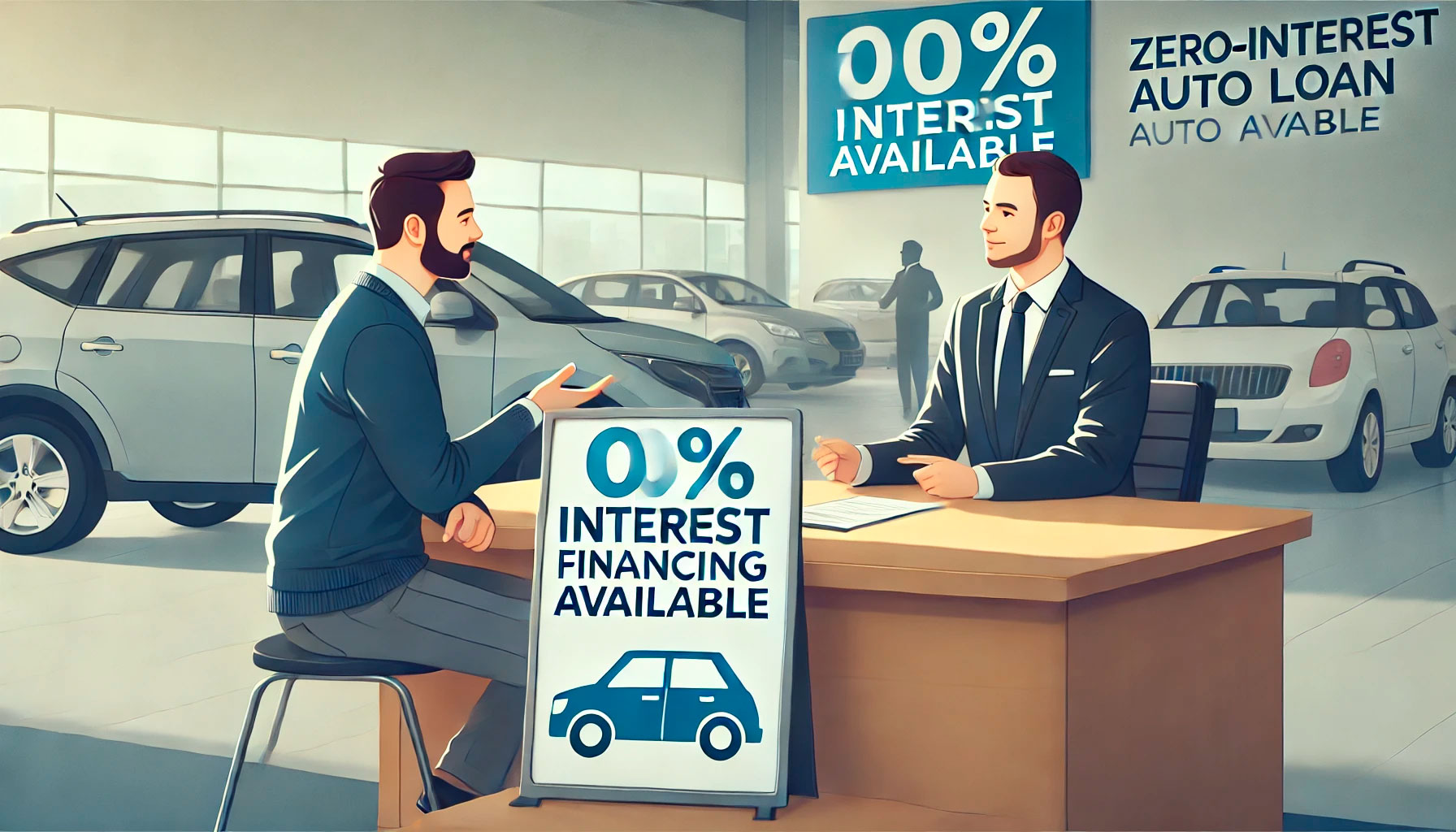Zero-interest auto loans are often advertised as an attractive offer for potential car buyers, promising to make a new vehicle more affordable by eliminating the interest costs typically associated with financing. On the surface, a zero-interest auto loan may seem like a no-brainer, especially if you’re looking to keep monthly payments low and avoid paying extra money over time. However, like any financial offer, it’s important to consider the full picture before committing to a zero-interest loan. In this article, we will explore the pros and cons of zero-interest auto loans, how they work, and what factors you should consider to determine if this financing option is truly a good deal for you.
How Zero-Interest Auto Loans Work
Zero-interest auto loans, as the name implies, allow you to finance the full purchase price of a car without paying any interest over the term of the loan. This means that the amount you borrow is the exact amount you will repay, with no added cost in the form of interest. For example, if you finance a $25,000 car with a zero-interest loan, you will only need to repay the $25,000, spread over the loan term, without paying additional interest on top of it.
These loans are typically offered by car manufacturers, dealerships, or financial institutions during promotional periods, especially when the market is competitive or when they want to attract customers to specific models. In some cases, a zero-interest loan offer may be tied to certain conditions, such as a short loan term or a specific credit score threshold. The goal for both the lender and the buyer is to make the purchase more appealing by eliminating the cost of interest, which is often a significant portion of the total loan repayment amount in a standard auto loan.
The Pros of Zero-Interest Auto Loans
Zero-interest auto loans can be an enticing option for buyers, particularly those looking to save on overall loan costs. There are several advantages to choosing a zero-interest loan over a traditional loan with interest rates, including the following:
1. Lower Total Loan Cost
One of the most obvious benefits of a zero-interest auto loan is the reduced total cost of the vehicle. With a traditional loan, interest payments add to the overall cost of the car, sometimes resulting in paying thousands of dollars more than the original purchase price. A zero-interest loan eliminates this additional cost, meaning you pay exactly what the car is worth, not a penny more. This can result in significant savings over the life of the loan, particularly if the loan term is short.

2. More Affordable Monthly Payments
Since the loan amount remains the same, the absence of interest can make monthly payments more affordable compared to a loan with an interest rate. In some cases, buyers may be able to secure longer loan terms with zero-interest financing, further lowering monthly payments. This can make it easier to budget for the purchase and reduce the strain on your finances, as you’re not paying extra for interest.
3. Simplicity and Transparency
Zero-interest loans offer a level of simplicity and transparency that can be appealing to buyers. There are no hidden fees, and the amount you borrow is the amount you repay. With traditional loans, the interest rate can be a source of confusion, especially if there are prepayment penalties, deferred interest, or fluctuating rates. With a zero-interest loan, you know exactly what your total repayment will be, which can make the financing process more straightforward and easier to understand.
The Cons of Zero-Interest Auto Loans
While zero-interest auto loans may sound ideal, they come with some potential drawbacks that buyers should carefully consider. Not all zero-interest loan offers are as good as they appear, and it’s important to weigh these disadvantages before jumping into a deal.
1. Limited Availability and Eligibility
Zero-interest loans are typically available only during promotional periods, and they are often tied to specific models, car manufacturers, or dealerships. This means that you may not have the option of choosing the exact car you want or may have to settle for a limited selection of vehicles to take advantage of the zero-interest offer. Additionally, not all buyers will qualify for zero-interest loans. These loans are often reserved for buyers with excellent credit, meaning that individuals with lower credit scores may be excluded from these offers or may face higher interest rates or less favorable terms.
2. Shorter Loan Terms
While zero-interest loans can help reduce monthly payments, they are often offered with shorter loan terms—such as 36 months or fewer. Shorter loan terms can mean higher monthly payments compared to longer-term loans, which may strain your budget. While you’ll save money on interest, the shorter loan term could result in a higher overall monthly payment, which might not be affordable for everyone. If you’re looking for a long-term loan to reduce monthly payments, a zero-interest loan might not be the best option, as the shorter term could limit flexibility.
3. Potential Trade-Offs with Other Incentives
One of the most important factors to consider when evaluating a zero-interest auto loan is whether you’re giving up other valuable incentives. In some cases, dealerships may offer a zero-interest loan or a cash rebate, but you may have to choose between the two. For instance, you could get a zero-interest loan, or you might be able to take advantage of a substantial cash rebate to use toward a down payment. It’s important to calculate the overall cost of the deal and determine which option will save you the most money in the long run. Sometimes, opting for a rebate may offer more financial benefit than a zero-interest loan, especially if the car price is inflated to compensate for the financing deal.
4. Higher Car Prices
Another disadvantage of zero-interest loans is that they may be used as a marketing tool to sell cars at higher prices. To compensate for the loss of interest income, dealerships or manufacturers might increase the vehicle’s price, which could make the car more expensive in the long run, despite the lack of interest charges. Buyers should be cautious when evaluating zero-interest offers, as the price of the car may not be as competitive as it seems. It’s important to compare the total price of the car, including any potential markup, with similar vehicles that are available without the zero-interest offer.
When Should You Consider a Zero-Interest Auto Loan?
A zero-interest auto loan can be a great deal if you qualify for one and are purchasing a vehicle that meets your needs and budget. If you have excellent credit, the loan terms are favorable, and the car price is competitive, a zero-interest loan could help you save a substantial amount of money on your vehicle purchase. However, it’s important to be cautious and weigh the pros and cons before committing to such a deal. Always consider the total cost of the car, the monthly payments, and whether other incentives might offer more savings in the long run. Additionally, if the car you want doesn’t qualify for zero-interest financing or the terms are not favorable, it may be better to look for alternative financing options, such as loans with low interest rates or cash rebates, to ensure you’re getting the best deal for your situation.
Conclusion
Zero-interest auto loans can be an excellent option for those who qualify, offering an opportunity to save money on interest and keep monthly payments affordable. However, these loans come with certain limitations, including eligibility requirements, shorter loan terms, and potential trade-offs with other incentives. To determine if a zero-interest auto loan is truly a good deal, it’s essential to consider the overall cost of the car, compare available options, and evaluate your financial situation. By carefully weighing the benefits and drawbacks, you can make an informed decision and secure the best financing deal for your next vehicle purchase.

